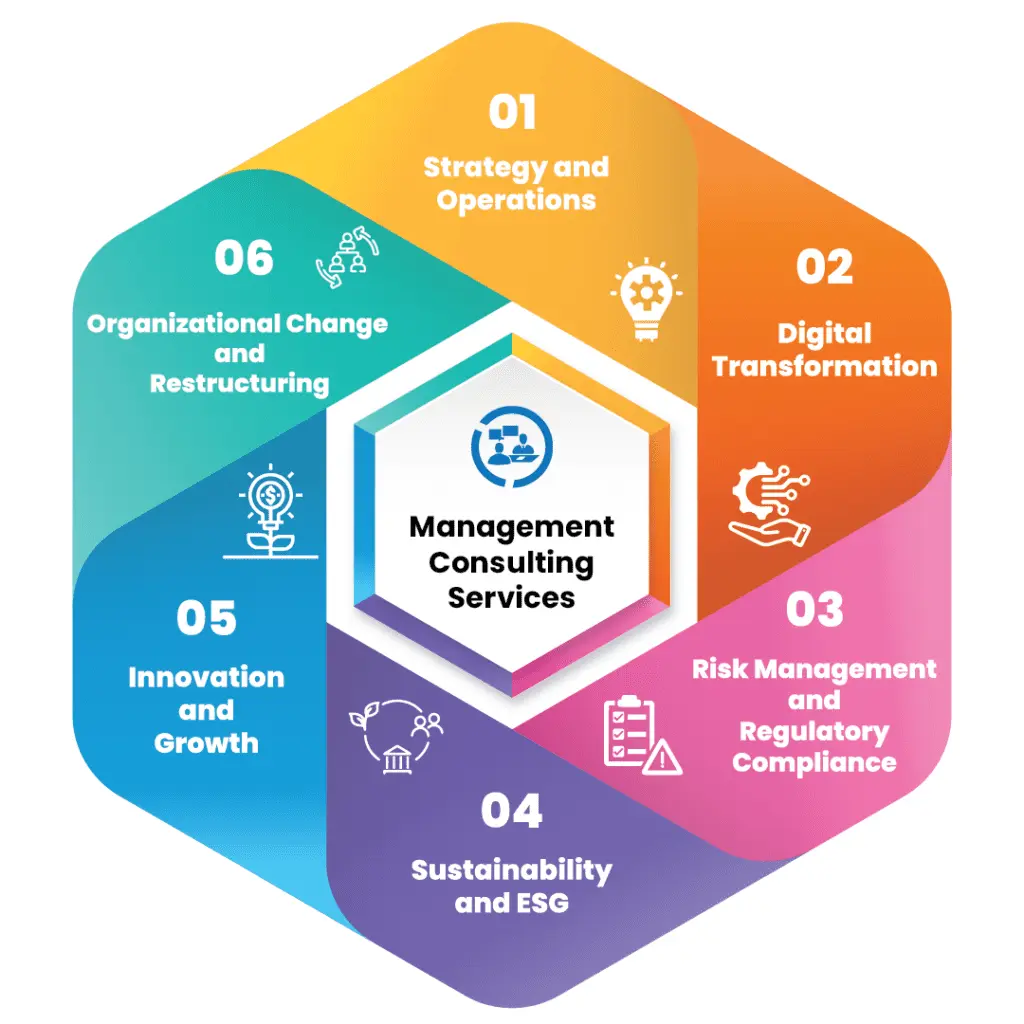As we approach 2025, the management consulting industry is undergoing transformative changes. Companies are actively seeking strategies to enhance profitability while navigating emerging challenges in the business landscape. This article explores the key trends that management consultants should prioritize to help their clients achieve success.
1. Embracing Digital Technologies and AI
Digital technologies and artificial intelligence (AI) are essential tools for modern businesses. Management consultants are guiding organizations in adopting these innovations to improve efficiency and reduce costs. Companies that successfully integrate AI into their operations can realize substantial enhancements in profitability.
Reports indicate that businesses leveraging AI for predictive analytics, customer service automation, and supply chain optimization have seen revenue increases of up to 13%. Consultants are critical in identifying suitable AI solutions and ensuring seamless implementation, ultimately enabling organizations to stay competitive in an increasingly digital marketplace.

2. Focusing on Remote Work Strategies
The shift to remote and hybrid work models has fundamentally altered how businesses operate. Consultants are advising organizations on strategies to maintain productivity and employee satisfaction in these evolving work environments.
By implementing effective remote work policies, companies can tap into a global talent pool, minimize office space expenses, and enhance employees’ work-life balance. Management consultants play a vital role in crafting these policies and integrating the necessary technologies for effective remote collaboration, ensuring businesses thrive in this new normal.
3. Prioritizing Sustainable Practices
Sustainability and ethics have become critical components of business strategy. Consultants are helping companies adopt eco-friendly practices that yield benefits for both the environment and their bottom line. For instance, organizations investing in renewable energy sources and sustainable supply chains can not only reduce their carbon footprint but also enjoy long-term cost savings.
Consultants assist businesses in identifying opportunities for integrating sustainable practices without compromising profitability, fostering a positive brand image and attracting clients who prioritize corporate social responsibility.
4. Leveraging Data Analytics
Data is an invaluable asset for any organization. Management consultants are helping companies harness data analytics to make informed decisions. By analyzing customer behavior, market trends, and operational performance, businesses can develop strategies that drive profitability.
Data-driven decision-making empowers organizations to identify growth opportunities, optimize operations, and enhance overall business performance, making data analytics a cornerstone of modern consulting practices.
5. Enhancing Personalized Services
Understanding and addressing client needs is more important than ever. Consultants are focusing on providing personalized solutions that cater to the specific challenges faced by their clients. This client-centric approach leads to stronger relationships and repeat business, ultimately boosting profitability.
By tailoring services to meet individual client requirements, consultants can deliver more effective solutions, helping businesses stand out in a competitive market.
6. Fostering Innovation and Agility
In a rapidly changing business landscape, innovation and agility are key to staying ahead. Consultants are encouraging companies to adopt agile methodologies and foster a culture of innovation. This enables businesses to respond quickly to market changes and evolving customer demands.
By promoting a mindset of continuous improvement and flexibility, consultants help organizations adapt to emerging trends and seize new opportunities.
Case Studies: Real-World Applications
Case Study 1: AI Boosts Efficiency
In 2024, a mid-sized financial services company partnered with a management consultant to integrate AI into their customer service operations. By implementing AI chatbots and automated data analysis tools, the firm achieved a 40% reduction in response times and a 25% increase in customer satisfaction. The operational cost savings led to a 12% increase in profitability.
The consultant played a crucial role in selecting appropriate AI technologies and training staff to utilize these tools effectively, enhancing operational efficiency and providing a competitive edge.
Case Study 2: Sustainable Practices Adopted
A manufacturing company sought consulting services in 2024 to minimize its environmental impact. By adopting energy-efficient machinery and optimizing supply chain logistics, the company reduced carbon emissions by 30% and cut operating costs by 15%.
The consultant provided a comprehensive sustainability roadmap aligned with the company’s profitability goals, enhancing its brand image and attracting eco-conscious clients.
Case Study 3: Data Analytics in Retail
In 2024, a retail chain leveraged data analytics to personalize customer experiences. Under the consultant’s guidance, the company analyzed purchasing patterns to offer targeted promotions and improve product recommendations, resulting in a 20% increase in sales and a 10% boost in customer loyalty.
The consultant assisted in establishing the necessary data infrastructure and trained the marketing team to interpret data effectively, empowering the retailer to gain valuable insights that drove strategic decision-making and profitability.
Preparing for the Future
The management consulting industry is playing a vital role in helping businesses prepare for the challenges of 2025. By focusing on digital transformation, flexible work strategies, sustainability, data analytics, personalized services, and fostering innovation, consultants can significantly enhance profitability for their clients.
Staying informed about these trends and adapting to them is essential for consultants who aim to deliver value and achieve successful outcomes for the businesses they serve.








